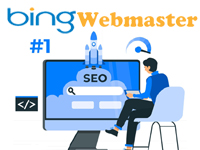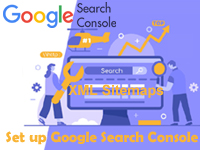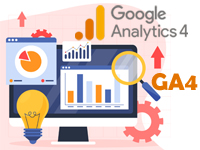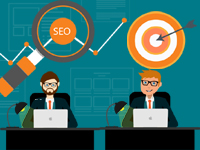SEO Marketplace for Selling SEO Services at Affordable Price
- Home
- SEO Marketplace for Selling SEO Services at Affordable Price
Get the best SEO Services
Find the best SEO Services Search Engine Optimization services to improve your website on search engines. Rank high in search engines and get unpaid visitors with SEO.
Contact Our Technical Support
If you have any question, then contact our technical support before you pay. Contact us through WhatsApp:
![]()
![]()


Buy the best SEO Services to improve your website
We have the best ways to get your website to the top of search engine results. We prepare a Search Engine Optimization plan to improve on-page and off-page of your website. If you plan to make your website appear on the first pages of search results, then you are in the right place. We have a team of professional marketers to provide you with professional marketing services.
- Increased Visibility and Traffic: Effective SEO practices help your website rank higher on search engine results pages (SERPs). This leads to greater visibility and more organic traffic.
- Better User Experience: A well-organized, fast-loading, and mobile-friendly website enhances user experience, which can lead to higher engagement and lower bounce rates.
- Credibility and Trust: Users tend to trust websites that appear on the first page of search results.
- Cost-Effectiveness: Compared to paid advertising, SEO is a cost-effective strategy in the long run. The organic traffic generated through SEO doesn’t incur direct costs per click.
- Competitive Advantage: A strong SEO strategy helps your website stand out from competitors, attracting more customers and potentially gaining market share.
Local SEO and Mobile Optimization: With the increasing use of mobile devices for searches, local SEO becomes important for attracting nearby customers. Optimizing for local search ensures that your business appears in local search results, maps, and business listings. - Long-Term Success: Unlike paid advertising, which stops providing results when the budget ends, effective SEO continues to attract traffic over time.
- Insights into Customer Behavior: SEO tools and analytics provide valuable data about user behavior, search patterns, and preferences. This information can inform other marketing strategies and help refine your overall business approach.
Search Engine Optimization (SEO) is a multifaceted discipline that can be divided into several key sections. These sections work together to improve a website's visibility in search engine results pages (SERPs). The main sections of SEO include:
- On-Page SEO: refers to the optimization of web pages to improve their ranking in search engine results and attract more traffic. This involves optimizing various elements of the web page itself like: Content Quality, Keywords, Title Tags, Meta Descriptions, Headings (H1, H2, etc.), URL Structure, Internal Linking, Alt Text for Images, Page Speed, Mobile Friendliness, and User Experience (UX).
- Off-Page SEO: refers to actions taken outside a website to improve its search engine rankings. These activities enhance your site's popularity, relevance, trustworthiness, and authority. Off-page SEO include: Backlinks, Social Media Marketing, Guest Blogging, Influencer Outreach, Brand Mentions, Forum Posting, Directory Submissions, Content Marketing, Online Reviews, and Local SEO.
- Technical SEO: refers to the optimization of a website's infrastructure to ensure that it meets the technical requirements of search engines to let search engines crawl and index it effectively. It include: Crawlability, Indexability, Site Speed, Mobile-Friendliness, Secure Sockets Layer (SSL), URL Structure, Structured Data Markup, Canonicalization, 404 and 301 Redirects, XML Sitemaps, and Breadcrumb Navigation.
- Local SEO: focuses on optimizing a website to be more visible in local search results. The goal of local SEO is to increase online visibility for local searches. It includes: Google My Business (GMB), Local Citations, Online Reviews, Localized Content, On-Page Local SEO, Mobile Optimization, Local Backlinks, Social Media Engagement, NAP Consistency, and Local Keywords.
- Content SEO: focuses on creating and optimizing unique content to improve a website’s search engine rankings and attract organic traffic. It involves producing high-quality, relevant content that meets SEO best practices. It includes: Keyword Research, Content Creation, On-Page Optimization, Content Structure, Internal Linking, Multimedia Integration, User Intent, Content Freshness, Content Length and Depth, Readability, and Engagement Metrics.
- User Experience (UX): refers to the experience a person has when interacting with the website or application, aiming to create a positive and efficient user journey. It includes: Usability, Accessibility, Design and Layout, Information Architecture, Interaction Design, Performance, Content, User Feedback, Mobile Responsiveness, and Consistency.
- Writing SEO-friendly content for your website pages.
- Improve On-page SEO of your website.
- Improve Off-page SEO of your website.
- Improve Technical SEO of your website
- Set up Google Analytics 4 GA4 for your website.
- Index website pages and improve SEO.
- Improve SEO ranking of websites.
- Create high quality Backlinks.
- Analytics Tools to track and measure user interaction.
Marketplace Categories
Web Traffic By Sources
- Web Traffic from direct visits or a Group of Websites
- Web Traffic from Facebook
- Web Traffic from Google
- Web Traffic from Linkedin
- Web Traffic from mobile phone devices
- Web Traffic from Reddit
- Web Traffic from social media websites
- Web Traffic from Twitter
Geo Web Traffic By Country
- Web Traffic from Afghanistan
- Web Traffic from Africa
- Web Traffic from Albania
- Web Traffic from Algeria
- Web Traffic from Andorra
- Web Traffic from Angola
- Web Traffic from Antigua and Barbuda
- Web Traffic from Arab Countries
- Web Traffic from Argentina
- Web Traffic from Armenia
- Web Traffic from Asia
- Web Traffic from Australia
- Web Traffic from Austria
- Web Traffic from Azerbaijan
- Web Traffic from Bahrain
- Web Traffic from Bangladesh
- Web Traffic from Barbados
- Web Traffic from Belarus
- Web Traffic from Belgium
- Web Traffic from Belize
- Web Traffic from Benin
- Web Traffic from Bhutan
- Web Traffic from Bolivia
- Web Traffic from Bosnia and Herzegovina
- Web Traffic from Botswana
- Web Traffic from Brazil
- Web Traffic from Brunei
- Web Traffic from Bulgaria
- Web Traffic from Burkina Faso
- Web Traffic from Burundi
- Web Traffic from Cambodia
- Web Traffic from Cameroon
- Web Traffic from Canada
- Web Traffic from Cape Verde
- Web Traffic from Chile
- Web Traffic from China
- Web Traffic from Colombia
- Web Traffic from Continent Of Australia
- Web Traffic from Costa Rica
- Web Traffic from Croatia
- Web Traffic from Cyprus
- Web Traffic from Czech Republic
- Web Traffic from Denmark
- Web Traffic from Dominica
- Web Traffic from Dominican Republic
- Web Traffic from Ecuador
- Web Traffic from Egypt
- Web Traffic from El Salvador
- Web Traffic from Estonia
- Web Traffic from Europe
- Web Traffic from Federated States of Micronesia
- Web Traffic from Fiji
- Web Traffic from Finland
- Web Traffic from France
- Web Traffic from GCC Countries Gulf Cooperation Council Countries
- Web Traffic from Georgia
- Web Traffic from Germany
- Web Traffic from Greece
- Web Traffic from Grenada
- Web Traffic from Guatemala
- Web Traffic from Guyana
- Web Traffic from Haiti
- Web Traffic from Honduras
- Web Traffic from Hungary
- Web Traffic from Iceland
- Web Traffic from India
- Web Traffic from Indonesia
- Web Traffic from Iran
- Web Traffic from Iraq
- Web Traffic from Ireland
- Web Traffic from Israel
- Web Traffic from Italy
- Web Traffic from Jamaica
- Web Traffic from Japan
- Web Traffic from Jordan
- Web Traffic from Kazakhstan
- Web Traffic from Kiribati
- Web Traffic from Kosovo
- Web Traffic from Kuwait
- Web Traffic from Kyrgyzstan
- Web Traffic from Laos
- Web Traffic from Latvia
- Web Traffic from Lebanon
- Web Traffic from Libya
- Web Traffic from Liechtenstein
- Web Traffic from Lithuania
- Web Traffic from Luxembourg
- Web Traffic from Macedonia
- Web Traffic from Malaysia
- Web Traffic from Maldives
- Web Traffic from Malta
- Web Traffic from Marshall Islands
- Web Traffic from Mauritania
- Web Traffic from Mexico
- Web Traffic from Middle East Countries
- Web Traffic from Moldova
- Web Traffic from Monaco
- Web Traffic from Mongolia
- Web Traffic from Montenegro
- Web Traffic from Morocco
- Web Traffic from Myanmar Burma
- Web Traffic from Nauru
- Web Traffic from Nepal
- Web Traffic from Netherlands
- Web Traffic from New Caledonia
- Web Traffic from New Zealand
- Web Traffic from Nicaragua
- Web Traffic from North America
- Web Traffic from Norway
- Web Traffic from Oman
- Web Traffic from Pakistan
- Web Traffic from Palau
- Web Traffic from Palestine
- Web Traffic from Panama
- Web Traffic from Papua New Guinea
- Web Traffic from Paraguay
- Web Traffic from Peru
- Web Traffic from Philippines
- Web Traffic from Poland
- Web Traffic from Portugal
- Web Traffic from Qatar
- Web Traffic from Romania
- Web Traffic from Russia
- Web Traffic from Saint Kitts and Nevis
- Web Traffic from Saint Lucia
- Web Traffic from Saint Vincent and the Grenadines
- Web Traffic from Samoa
- Web Traffic from San Marino
- Web Traffic from Saudi Arabia
- Web Traffic from Serbia
- Web Traffic from Singapore
- Web Traffic from Sint Maarten
- Web Traffic from Slovakia
- Web Traffic from Slovenia
- Web Traffic from Solomon Islands
- Web Traffic from South America
- Web Traffic from South Korea
- Web Traffic from Spain
- Web Traffic from Sudan
- Web Traffic from Suriname
- Web Traffic from Sweden
- Web Traffic from Switzerland
- Web Traffic from Syria
- Web Traffic from Taiwan
- Web Traffic from Thailand
- Web Traffic from The Bahamas
- Web Traffic from Timor Leste
- Web Traffic from Tonga
- Web Traffic from Trinidad and Tobago
- Web Traffic from Tunisia
- Web Traffic from Turkey
- Web Traffic from Turkmenistan
- Web Traffic from Tuvalu
- Web Traffic from UAE, United Arab Emirates
- Web Traffic from UK, United Kingdom
- Web Traffic from Ukraine
- Web Traffic from Uruguay
- Web Traffic from USA, United States
- Web Traffic from Uzbekistan
- Web Traffic from Vanuatu
- Web Traffic from Vatican City
- Web Traffic from Venezuela
- Web Traffic from Vietnam
- Web Traffic from Yemen






